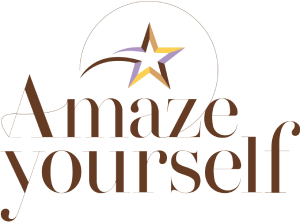Most people know that a creative idea, is just that, an idea. When you have one, it’s important to write it down to make sure it doesn’t dissolve into the ether as you manage every other aspect of your daily life. After all, a successful novelist isn’t the person who has the best possible ideas, it’s the person who knows how to convert those ideas into a page, woven into a story with structure, and one that can be enjoyed by an end reader.
If you have that lightning-in-a-bottle business idea, you may wonder how to get started. Running a business, after all, is a little more difficult than sitting in front of a word processor. It takes startup capital, the ability to structure your deliverables and to network with care. So, let’s consider the baby steps first. This will provide you with the context needed to take those tentative steps forward:
Protect Your Idea
If you have an idea, concept, or prototype that could be patented, then applying for a patent can be ideal. Depending on the country you reside in, this process could look a little different. For example, developing a full prototype with design plans will be necessary for a patent to be awarded.
For some, actual production proof is required. Others, you just need to submit plans for the product but not have anything tangible to protect it. Regardless, before you sell the idea to investors or gauge what others think of it, consider protecting it. At the very least, design ideas should be kept under lock and key.

Photo by Pexels – CC0 License
Consider Market Positioning
No product, service, or tangible utility will exist in a vacuum. We all operate within a market, and we need to make certain that the market is both available to us and ripe for development. Without that, it’s easy to launch with zero fanfare.
Of course, you don’t have to predict the exact revenue or interest you’ll attract, but researching competitors deeply, seeing where the gap in the market is, and gently researching needs going unmet, will help you consider just what market share you could take for yourself and gain a somewhat stereotyped idea of the kind of customer you’re looking at. This helps you consider if the approach is tangible. For example, you might have the best idea for a barbecue business, but if the location you’re looking at is in the heart of a highly vegan area, is it really best to progress to stage two in that place?
Tangibly Explore Your Idea
The truth is that even the most impressive eureka moment is never a fully-formed idea, but a hint of one. No one thinks of something new in its fullest form will all permutations considered. That’s why it’s good to explore your idea, its implements, its capabilities, and where it might be specialized. Who does it serve, and for how long? Will you require any unique utilities, as a high risk merchant account is available here for mature businesses? What might the price point be? Can it offer more than one revenue stream? Keeping that in mind will help you avoid letting one idea carry you even during an inspired moment, you’ll test the idea and think it through capably.
With this advice, you’ll be sure to perfect that lightning-in-a-bottle business idea.
This is a guest blog. Now and again we decide to share interesting content, not immediately written by us, yet relevant to you.
- You Have That Lightning-In-A-Bottle Business Idea – So What Now? - 9 April 2024
- How to enhance your value and skyrocket your sales - 4 February 2024
- How To Work Productively (From Anywhere In The World) - 30 January 2024

